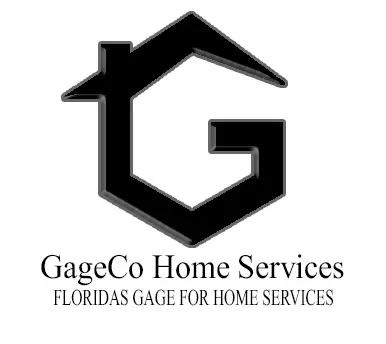Why Residential House Demolition Is Important
Residential house demolition is a crucial process often needed for redeveloping a property or clearing hazardous structures. This meticulous process involves tearing down a building safely and efficiently to make way for new constructions or improvements.
Quick Facts About Residential House Demolition:
- Average Cost: From $3,000 to $35,000, varying by location and project size.
- Duration: Typically, 1 to several days, depending on complexity.
- Permits Required: Yes, including demolition and potentially zoning permits.
Residential house demolition holds significant importance for maintaining safe and sustainable communities. Whether it’s to remove a dilapidated structure or prep a site for new construction, understanding the costs, steps, and considerations is essential for homeowners.

What is Residential House Demolition?
Residential house demolition is the process of tearing down a home or structure to clear the land for new construction or other uses. This can involve completely removing a building or selectively dismantling parts of it. The main goal is to safely and efficiently remove the structure while minimizing risks and maximizing the potential for reuse or recycling of materials.
Purpose of Residential House Demolition
The primary purposes of residential house demolition include:
- Clearing Land for New Construction: Often, old or unsafe buildings need to be removed to make way for new homes or developments.
- Removing Unsafe Structures: Buildings that are structurally unsound or pose health risks may need to be demolished.
- Renovation and Remodeling: Sometimes, parts of a building are demolished to allow for significant renovations or remodeling projects.
Types of Residential House Demolition
There are several types of residential house demolition, each suited to different needs and circumstances:
- Total Building Demolition: This involves the complete removal of a building. It is often done using heavy machinery like excavators and bulldozers. This method is quick and efficient but results in a lot of waste.
- Selective Demolition: Also known as deconstruction, this method involves carefully dismantling parts of the building to salvage valuable materials. This can include doors, windows, and wooden beams. Selective demolition is more labor-intensive but environmentally friendly.
- Interior Demolition: This type focuses on removing interior parts of a building, such as walls, ceilings, and fixtures, while leaving the exterior structure intact. It’s commonly used in remodeling projects.
- Manual Demolition: This involves using hand tools to dismantle the structure. It’s slower and more labor-intensive but allows for precise removal and salvaging of materials.
- Mechanical Demolition: This uses heavy machinery to tear down the structure quickly. It’s faster and often more cost-effective for large projects but generates more waste.
Case Study: Hybrid Demolition in Action
A Philadelphia homeowner recently opted for a hybrid demolition approach. The project involved salvaging high-value materials like appliances and cabinetry (soft-stripping) and then using machinery for the remaining demolition. This method not only reduced waste but also saved money on disposal fees.
Benefits of Deconstruction
Deconstruction, a form of selective demolition, offers numerous benefits:
- Environmental: Reduced dust and heavy metal leaching, less waste in landfills, and lower consumption of new materials.
- Economic: Creation of jobs, resale of salvaged materials, and potentially lower overall costs.
- Social: Blight removal, workforce development, and training opportunities.
For a more detailed understanding of the benefits and strategies of deconstruction, check out this report.
Understanding these types and purposes of residential house demolition can help homeowners make informed decisions about their projects. Next, we’ll dive into the costs associated with residential house demolition.
Costs of Residential House Demolition
Demolishing a house can be more complex than it seems, and the costs can vary widely. Here’s a breakdown of what to expect:
Average Costs
On average, residential house demolition costs between $3,000 and $35,000. The wide range is due to several factors, like the size of the house and the complexity of the job. For example, demolishing a small, single-story home could cost around $4,000, while a larger, two-story home might be closer to $30,000 or more.
Factors Affecting Cost
Several factors influence the cost of demolishing a house:
- Size of the House: Larger homes require more labor and equipment.
- Location: Costs can vary by region due to different labor rates and disposal fees.
- Type of Demolition: Manual demolition is usually more expensive than mechanical demolition.
- Permits and Inspections: Obtaining necessary permits and conducting inspections, such as asbestos checks, will add to the cost.
- Waste Disposal: Fees for disposing of demolition waste can be significant.
Cost Breakdown
Here’s a typical cost breakdown for a residential house demolition:
- Labor: $1,000 – $10,000, depending on the size and complexity.
- Permits: $100 – $500, depending on local regulations.
- Waste Disposal: $300 – $2,000, depending on the volume of debris.
- Equipment: $500 – $5,000, depending on the type of machinery used.
- Inspections: $200 – $1,000, especially for older homes that may contain asbestos or lead.
Regional Variations
Costs can also vary significantly depending on where you live. For instance, demolition services in urban areas like Philadelphia might be more expensive due to higher labor rates and stricter regulations. In contrast, rural areas may have lower costs but could face higher fees for waste disposal due to fewer local facilities.
For more detailed and localized cost estimates, it’s best to contact demolition contractors in your area. They can provide quotes based on your specific needs and local conditions.
Next, we’ll explore the step-by-step process of residential house demolition.
The Demolition Process
Step 1: Preparation
Before any residential house demolition begins, thorough preparation is crucial.
Site Inspection: A professional will inspect the site to identify any potential hazards and create a detailed plan for the demolition.
Utility Disconnection: All utilities such as water, gas, and electricity must be disconnected to ensure safety. This step is non-negotiable to prevent accidents.
Asbestos Inspection: An asbestos inspection is often required, especially for older homes. Asbestos must be safely removed before demolition to avoid health risks.
Step 2: Obtaining Permits
Permits are essential for legal and safe demolition.
Demolition Permit: You will need a Complete Demolition Permit if tearing down the entire structure. In Philadelphia, this is issued by the Department of Licenses and Inspections (L&I).
Zoning Permit: Depending on local regulations, a zoning permit may also be required to ensure the demolition complies with zoning laws.
Related Permits: Additional permits might be necessary for specific tasks like tree removal or street use.
Philadelphia-Specific Requirements: In Philadelphia, permits must be applied for under the legal address established by the Office of Property Assessment (OPA). A site safety manager and demolition supervisor must also be named in the application.
Step 3: Actual Demolition
Once all preparations and permits are in place, the actual demolition can begin.
Manual Demolition: This involves dismantling the structure by hand. It is labor-intensive but allows for the salvage of materials like wood and fixtures.
Mechanical Demolition: This uses heavy machinery like excavators and bulldozers. It is faster but generates more waste and dust.
Safety Protocols: Safety is paramount. Workers must wear protective gear, and the area should be cordoned off to protect the public. Dust control measures, like spraying water, are also crucial.
Step 4: Waste Disposal and Site Clearing
After the structure is demolished, the debris must be managed properly.
Waste Hauler Form: In some areas, you may need to complete a waste hauler form to document how the waste will be handled.
Recycling: Many materials, such as metal and concrete, can be recycled. This is not only environmentally friendly but can also reduce disposal costs.
Disposal Fees: Fees for dumping waste in landfills can add up. It’s best to account for these costs in your budget.
By following these steps and understanding the intricacies involved, you can ensure a smooth and efficient residential house demolition process. Next, we’ll dive into some tips for a successful demolition project.
Tips for a Successful Residential House Demolition
Choosing a Contractor
Selecting the right contractor is crucial for a successful residential house demolition. Look for licensed and insured professionals with a solid track record. Check customer ratings, reviews, and project photos to get a sense of their work quality. For instance, Sharon Bey praised her contractor for being “super fast, professional, and really cleaned out everything!” Positive feedback like this indicates reliability and efficiency.
Insurance
Demolition Insurance: This is essential for both property owners and contractors. It covers bodily harm, property damage, and the cost of tearing down undamaged portions of a damaged structure. Make sure your contractor has adequate insurance to protect against accidents and unforeseen issues.
Homeowners Insurance: Verify if your policy includes demolition and debris removal. Some policies only cover a percentage of the total costs, so it’s important to understand the specifics to avoid unexpected expenses.
Timeline
Discuss the timeline with your contractor before starting the project. The duration can vary based on the size and complexity of the house. Generally, demolishing a house can take between one and several days. Clear communication about the timeline helps set realistic expectations and ensures the project stays on track.
Communication
Effective communication is key to a smooth demolition process. Keep an open line of communication with your contractor to address any concerns promptly. As Sabrina Moore noted, “Great customer service and communication throughout the entire process” can make a significant difference in your experience.
Regular updates from your contractor will keep you informed about the project’s progress and any potential issues. This helps in making timely decisions and ensures a hassle-free demolition experience.
By following these tips, you can ensure a successful and efficient residential house demolition. Up next, we’ll answer some frequently asked questions about residential house demolition.
Frequently Asked Questions about Residential House Demolition
Is it a good idea to demolish a house?
Demolishing a house can be a good idea for several reasons. Financially, it may be more cost-effective to tear down an old, deteriorating house and build a new one rather than trying to renovate. Renovations can often uncover hidden issues, leading to unexpected costs. For instance, if you find asbestos or structural problems, the expense can skyrocket.
Long-term benefits include improved property value and a more energy-efficient home. A new house built with modern materials and techniques can save you money on utilities and maintenance in the long run.

Do you need a demo permit in Philadelphia?
Yes, you need a Complete Demolition Permit to demolish an entire building in Philadelphia. This permit is crucial and ensures that the demolition process adheres to safety and legal standards.
Permit Requirements:
- Property owners or authorized agents (like demolition contractors) can apply.
- The application must include a complete listing of addresses and current owner information.
- If the property is newly sold, a copy of the settlement sheet or deed is required.
- A Philadelphia-licensed demolition contractor must perform the work.
- Plans may be required if more than two-thirds of existing framing is removed.
Application Process:
- Prepare Documents: Gather all necessary documents, including owner information and contractor details.
- Submit Application: Apply under the legal address established by the Office of Property Assessment (OPA).
- Review and Approval: L&I will review the application and issue the permit if all requirements are met.

Can you demolish a house with a mortgage?
Yes, but it involves additional steps and legal considerations. If you have a mortgage on the house you wish to demolish, you need to:
- Check Mortgage Agreement: Review your mortgage terms. Some agreements explicitly prohibit demolition without lender consent.
- Get Lender Approval: Contact your lender to discuss your plans. You may need to provide detailed plans and permits to get approval.
- Legal Considerations: Ensure that demolishing the house won’t violate any local zoning laws or homeowner association rules.
Failing to get lender approval can lead to severe consequences, including foreclosure. Always consult with a legal advisor to understand the full implications.

By addressing these questions, you can better understand the complexities and benefits of residential house demolition. Up next, we’ll dive into the conclusion and discuss how GageCo Home Services can assist you with your demolition needs.
Conclusion
In summary, residential house demolition is a complex but essential process for many homeowners and developers. From understanding the costs and obtaining the necessary permits to ensuring safety and proper waste disposal, each step requires careful planning and execution.
At GageCo Home Services, we bring over 30 years of experience to the table. Our commitment to quality and personalized service sets us apart. We treat each project as if it were our own home, ensuring minimal disruption and maximum satisfaction.
Our team of skilled professionals is dedicated to providing comprehensive and reliable demolition solutions. We prioritize safety and efficiency while maintaining a strong focus on environmental sustainability. By recycling materials and minimizing waste, we help our clients achieve their sustainability goals.
When you choose GageCo Home Services, you’re not just hiring a contractor; you’re partnering with a team that values your property and your vision. Whether you need a full-scale demolition or a targeted interior stripout, we have the expertise and resources to get the job done right.
Don’t settle for less than the best. Contact us today to learn more about our residential demolition services and how we can help you achieve your project goals. Our team is ready to answer any questions you may have and provide you with a free on-site estimate.
Thank you for considering GageCo Home Services for your demolition needs. We look forward to working with you to create a safe, efficient, and successful project.


